Vitamins are not only involved in regulating bodily functions and supporting the immune system, but they also help with cell growth and repair. However, diagnosing vitamin deficiencies can get tricky, as symptoms like fatigue, pain, and palpitations caused by a lack of vitamins can mimic other health conditions.
Back in the day, understanding your vitamin levels meant going to the hospital for blood tests. But now, with advancements in medical tech, there are home vitamin testing kits available, making testing easier and quicker. So, here are 6 top-notch home vitamin level testing services we’ve handpicked for you, giving you some valuable insights to make an informed decision.
- Rootine: Comprehensive Vitamin Level Test with CLIA Certification
- Labcorp: Physical Lab Testing for Folate, Vitamin B12/D
- myLAB Box: Vitamin D Test Focused on Bone Health
- Everlywell: Affordable Vitamin D and Inflammation Level Testing
- Labcorp Ferritin: Testing for Indicators of Iron Deficiency
- EmpowerDX: Testing for Folate and Vitamin B12 Levels
- FAQs About Vitamin Testing
Rootine: Comprehensive Vitamin Level Test with CLIA Certification
Rootine’s vitamin test is very comprehensive. It covers a range of vitamin levels, including B2, B6, B9, B12, D, C, ALA, and Omega-3. It even checks your current levels of folate, B12, and vitamin D. On top of that, the test also measures high-sensitivity C-reactive protein (hs-CRP) levels, which is an inflammation marker. And for added precision, they measure homocysteine levels, which can indicate heart issues or vitamin deficiency if they’re too high.
*All prices in the article are as of the time of writing
For folks looking to keep tabs on their nutrition consistently, Rootine offers a subscription service with a slight discount. Note that this test isn’t available in New York and can’t be paid for using FSA/HSA.
Rootine’s testing process is a piece of cake – just a fingertip blood sample. Once your sample reaches them, you’ll get results within around 3 days. Their lab holds a CLIA certification. Rootine even dishes out comprehensive vitamin supplements.
Pros:
- Comprehensive testing for a variety of vitamins.
- Customized vitamin supplements available.
- Testing done in a CLIA-certified lab.
- Simple and straightforward blood testing process.
Cons:
- Doesn’t cover mineral level testing.
- Slightly on the pricey side.
- Not available to New York residents.
- Not usable with FSA/HSA.
Labcorp: Physical Lab Testing for Folate, Vitamin B12/D
Labcorp’s “Vitamin Deficiency Test” zeroes in on three vitamins in your blood: folate (vitamin B9), vitamin B12, and vitamin D levels. This test suits specific groups like vegans, vegetarians at risk of B12 deficiency, seniors, and those who’ve had stomach or intestinal surgeries affecting nutrient absorption.
You’ll need to visit a physical Labcorp testing center for this one. Labcorp’s got pros doing the sampling, and results usually roll in within 1-2 days. You can view results via your Labcorp OnDemand account. And if needed, medical experts might reach out by phone or email. Mind you, fasting for 12 hours before the test and cutting out biotin supplements 72 hours prior are recommended.
Labcorp’s vitamin testing gets kudos for efficiency and customer service, but some mention the relatively higher cost and narrower test scope. Also, heading to a physical lab might not suit everyone. However, for health-conscious folks seeking accurate results, it’s a solid choice.
Pros:
- Professional sampling for accurate results.
- Lab work done in CLIA-certified labs.
- Results in 1-2 days.
- Accepts HSA and FSA payments.
- Offers free doctor consultations.
- Users praise efficient service and good attitude.
Cons:
- Requires a visit to a lab for testing.
- Test scope is relatively limited.
- Requires a 12-hour fasting period before testing.
- No return or refund policy.
myLAB Box: Vitamin D Test Focused on Bone Health
myLAB Box’s vitamin D test is designed to measure your body’s vitamin D levels, especially suitable for those keen on their bone health. It gives folks a clear picture of whether their vitamin D levels are where they should be.

The at-home vitamin D test from myLab Box analyzes the amount of 25-hydroxyvitamin D — also known as 25(OH)D — in your body, this combines both vitamin D2 and D3. Moreover, myLab Box offers a service for users wanting to track their vitamin D levels every 6 months.
The fingertip blood test through myLab Box takes around 5 minutes. Once the lab receives your sample, you can check your results on their online platform within 2-5 days.
myLAB Box’s lab holds both CLIA and CAP certifications, ensuring accurate and professional testing. This test also has the CDC’s approval.
Pros:
- Specifically geared toward bone health with its vitamin D test.
- Simple and easy fingertip blood sampling.
- Uses labs certified by CAP and CLIA.
- Accepts HSA/FSA payments.
Cons:
- Not available to New York residents.
- Results usually arrive within 2-5 days, although some users have mentioned a slower turnaround.
Everlywell: Affordable Vitamin D and Inflammation Level Testing
Everlywell’s Vitamin D test doesn’t just measure your body’s vitamin D levels, it also checks for C-reactive protein (CRP) linked to body inflammation. Users can conveniently collect samples at home through a fingertip blood test. The samples are sent to a CLIA-certified lab for testing, and the results are reviewed by professional doctors. Everlywell encourages users to discuss these results further with medical experts.
Price-wise, Everlywell’s Vitamin D test is more budget-friendly compared to other brands, and there’s a discount for members. While this test has many positives like its price, easy sampling, and comprehensive explanations, there are also a few drawbacks, such as relatively longer result times and some inconvenience in using the testing kit.
Pros:
- Relatively affordable price.
- Testing analysis done in labs certified by CLIA.
- Results reviewed by professional doctors, with easily understandable feedback provided.
- Capable of detecting the body’s inflammatory response.
Cons:
- Slightly longer result feedback compared to other brands.
- Some users have mentioned inconvenience with the testing kit.
- Not available to New York residents.
- Not suitable for individuals requiring multiple nutrient deficiency tests.
Labcorp Ferritin: Testing for Indicators of Iron Deficiency
Iron deficiency can lead to symptoms like anemia, weakness, dry or unusually pale skin, fatigue, and more. For those looking to understand their iron status, Labcorp’s ferritin blood test offers a quick, cost-effective, and relatively accurate way.
Ferritin is the protein that stores iron in the body. Thus, low ferritin levels could mean the body doesn’t have enough iron to store, hinting at iron deficiency. However, it’s important to note that confirming iron deficiency might require more than just ferritin testing.
Labcorp’s ferritin blood test takes place in a CLIA-certified lab and requires samples to be collected by professionals at Labcorp’s physical labs.
Pros:
- More budget-friendly compared to other single nutrient tests.
- Professional sampling ensures accuracy in the collection process.
- Testing done in labs certified by CLIA.
- Results are typically available within 1-2 days.
- Accepts HSA and FSA payments.
Cons:
- Only tests ferritin levels, which might not be accurately indicative of iron deficiency.
- Requires a visit to a Labcorp physical lab for testing.
- Doesn’t accept insurance payments.
- No return or refund policy.
EmpowerDX: Testing for Folate and Vitamin B12 Levels
EmpowerDX’s Vitamin B12 + Folate test measures the levels of vitamin B12 and folate (vitamin B9) in the blood. These two vitamins play a critical role in red blood cell formation and are involved in making DNA and RNA to aid in cell construction. Importantly, vitamin B12 is crucial for a healthy nervous system. Note that an 8-hour fasting period is required before the test.
EmpowerDX lists a range of symptoms that might indicate low vitamin B levels, such as unsteady movements, mental confusion or forgetfulness, as well as low energy, weakness, or fatigue. This test is suitable for anyone concerned about these symptoms.
Pros:
- Results are typically available within 2 days.
- Accepts HSA and FSA payments.
- Samples are analyzed in labs certified by CLIA.
Cons:
- Requires an 8-hour fasting period before testing.
FAQs About Vitamin Testing
What are the common vitamin deficiencies?
The CDC lists several common deficiencies in the United States, including:
- Vitamin B6
- Iron
- Vitamin D
- Vitamin B12
- Vitamin E
- Folate
- Vitamin A
- Vitamin C
In 2017, research indicated that Vitamin B6 was one of the most common vitamin deficiencies, alongside iron, Vitamin C, and Vitamin D. Moreover, it’s estimated that 20% of adults aged 60 and above in the US have a Vitamin B12 deficiency.
Who needs vitamin level testing?
Deciding whether you need vitamin level testing requires considering your medical history, diet, and current symptoms. For instance, if you have a history of iron deficiency, are a vegetarian or vegan, or are experiencing symptoms like dizziness, fatigue, and shortness of breath, seeking advice from medical experts is recommended. Based on that, you might need to check your iron levels either at a hospital or through at-home testing devices.
Additionally, individuals who lack regular sun exposure are at risk of Vitamin D deficiency, making testing their blood Vitamin D levels necessary.
Furthermore, individuals following specific dietary restrictions or suffering from conditions that might lead to nutrient deficiencies, like celiac disease and inflammatory bowel disease, should also consider monitoring their nutritional status.
What symptoms might indicate a vitamin deficiency?
Taking Vitamin D as an example, patients with mild deficiencies might not display obvious symptoms, but prolonged severe deficiency in adults can lead to decreased bone density, while children might face growth issues, delayed development, or skeletal deformities.
Iron deficiency can lead to symptoms like physical weakness, fatigue, and in severe cases, palpitations, chest tightness, and breathing difficulties.
Common symptoms of nutrient deficiencies include:
- Decreased energy
- Lack of concentration
- Physical weakness
- Irritability
- Confusion
- Unintentional weight loss
- Difficulty breathing
- Brittle nails
- Dry skin
- Weakened immune system
- Swollen or bleeding gums
- Hair loss
- Frequent headaches
- Dizziness
- Joint or bone pain
- Skin issues
- Swollen tongue
- Low mood or depression
- Loss of appetite
- Easily bruised
It’s important to note that these symptoms could also arise from other health issues and might not necessarily indicate a nutrient deficiency. If experiencing these symptoms, consulting a doctor is the best course of action to determine the true cause before initiating appropriate treatment.
Are at-home vitamin level test results reliable?
When someone develops a nutrient deficiency, the body might exhibit some symptoms, some of which might not be easily noticeable. While at-home tests can’t replace advice from doctors or nutritionists, they can give an indication of nutrients missing from one’s diet.
Most at-home vitamin tests are conducted in labs certified by the Clinical Laboratory Improvement Amendments (CLIA). When purchasing testing kits, ensuring they have this certification is crucial. CLIA regulations are jointly established by government departments such as the FDA, CDC, and CMS to guarantee the accuracy and quality of diagnostic tests. For more information about CLIA, click here.
However, test accuracy can be influenced by various factors, like following instructions closely. Collecting samples at home might lead to higher error rates, especially when compared to samples collected by professionally trained technicians.
Additionally, some testing methods might be more accurate. Research shows that for identifying certain nutrient deficiencies, blood samples are more reliable than saliva samples.
How to choose a vitamin level testing service?
- Types of nutrients tested: Each testing kit targets different types of vitamins or mineral levels, so assess your personal needs to determine which nutrients are most important for you.
- Follow-up support: Some testing services offer follow-up support and guidance from medical professionals after receiving test results, while others suggest sharing results with a doctor for assistance.
- Testing method: Consider which testing method you prefer. While most tests require collecting samples through a fingertip blood test, some might use saliva samples, and others might require visiting a lab for testing.
- Lab certification: Look for companies that send samples to certified labs, as this helps ensure the accuracy and reliability of test results.
- Price: Different testing kits and services can vary greatly in price, and some might recommend undergoing testing multiple times over an extended period to monitor changes in nutrient levels. Therefore, considering your budget when purchasing is necessary.
How to take action based on at-home test results?
- Seek timely medical attention: If results indicate possible nutrient deficiencies, it’s advisable to consult a doctor before taking supplements.
- Determine the cause of nutrient deficiency: A doctor can help you identify the root cause of nutrient deficiency, such as dietary habits or any underlying medical conditions.
- Refer to a registered dietitian’s advice: Doctors might recommend consulting a registered dietitian, who can assist in creating a dietary plan that suits your needs.
- Consider supplementing with vitamins or minerals: In some cases, you might need specific vitamin or mineral supplements, such as iron-enriched multivitamins or Vitamin D3, B6, or B12. However, it’s important to confirm with a medical expert before starting any new supplements.
Disclosure: We are an Amazon Associate. Some links on this website are affiliate links, which means we may earn a commission or receive a referral fee when you sign up or make a purchase through those links.




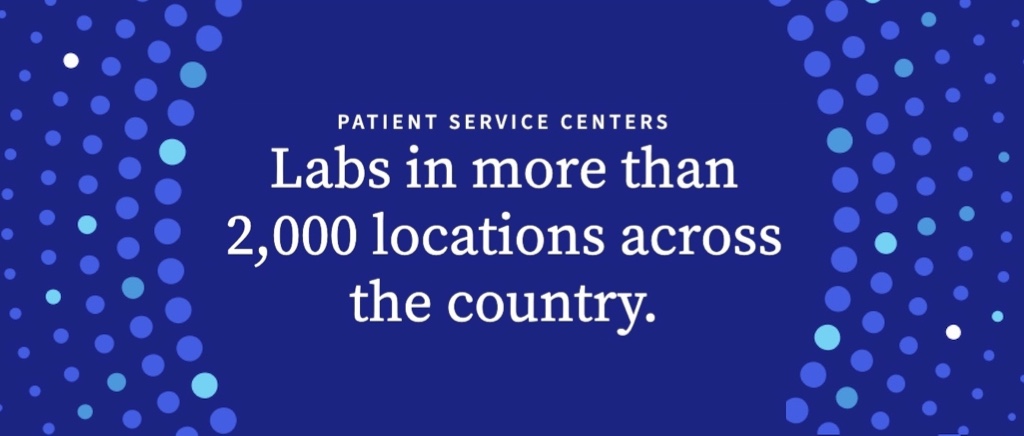
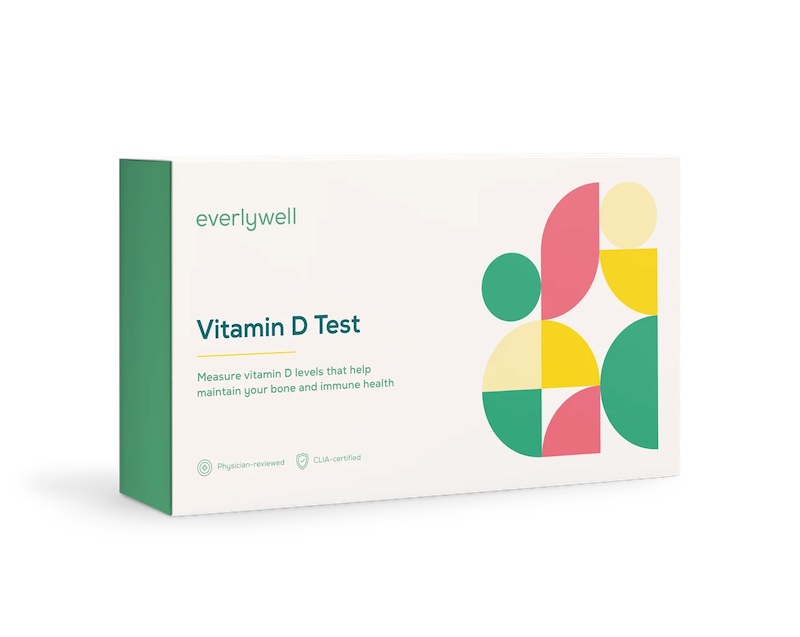
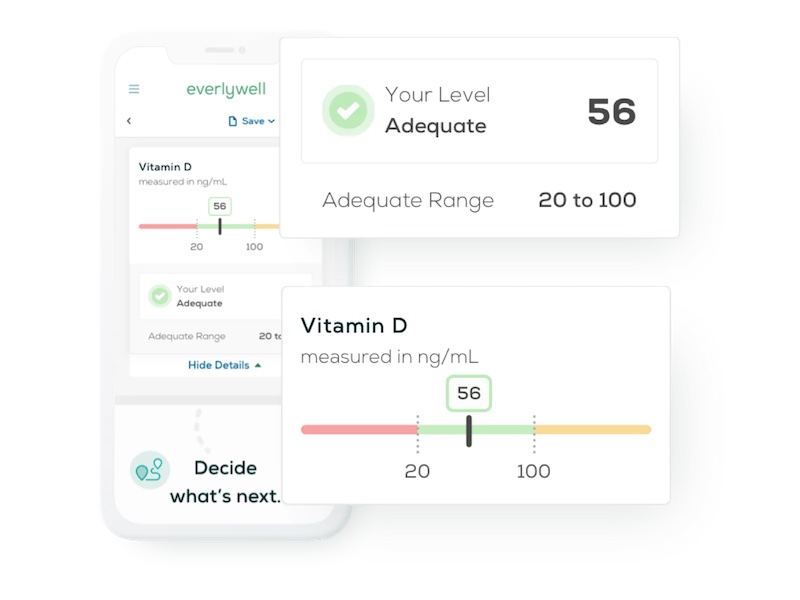







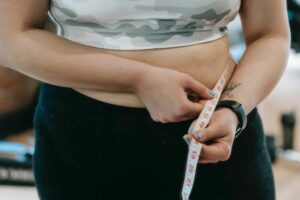
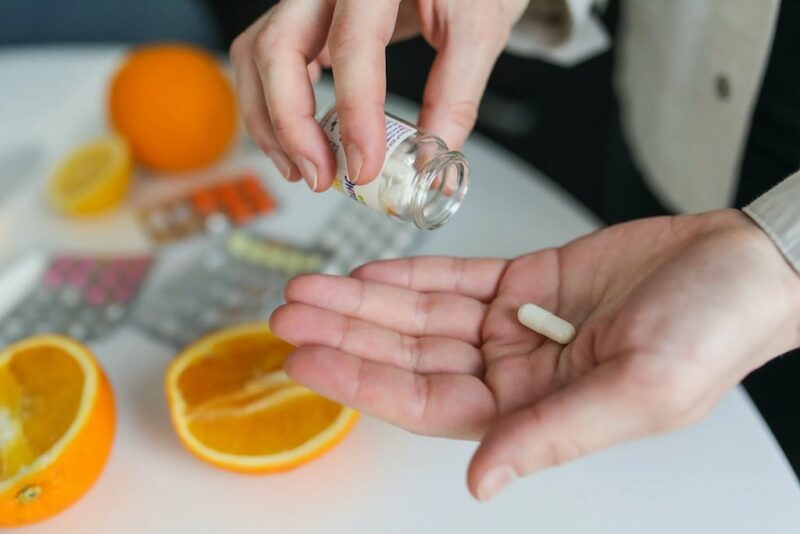


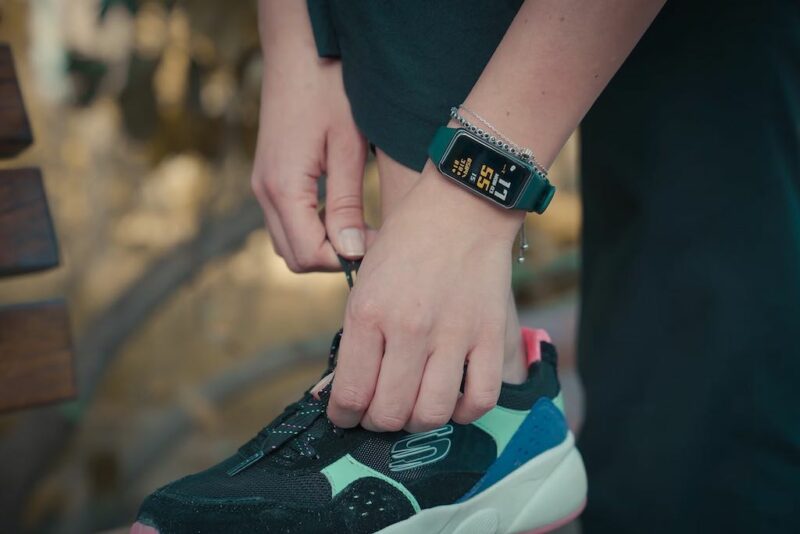

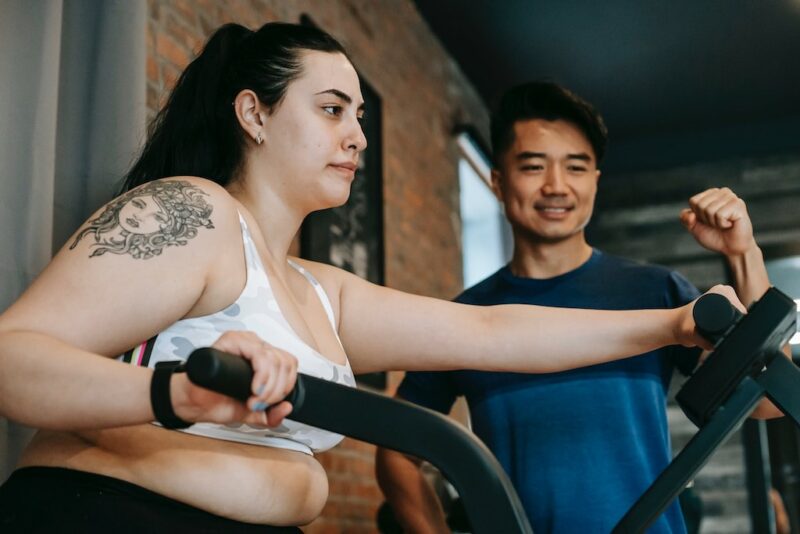



Leave a Reply